Mosaic of the Three Beauties and the Bath of Poimenios
Mosaic of the Three Beauties and the Bath of Poimenios
The Mosaic of the Three Beauties and the Bath of Poimenios, Archaeological excavations carried out in 1975 The pomegranate A fisherman from Silifke County. It's from the 4th century A.D. It belongs to the century. The mosaic on the floor of the remains of the baths offers a fascinating history and patterns.
The Mosaic of the Three Beauties, It is a work depicted on the ceiling of the Bath of Poimenios and The daughters of Zeus It represents. The dominant colors in the mosaic are white, black, brown, and yellow. The daughters of Zeus known as the Three Beauties. Aglaia, Euphrosyne and Thalia, Among the birds Dancing and bathing has been depicted.
The Mosaic, the geometric patterns, birds and flower motifs It's decorated with. It's in the ancient Greek inscription on it. "If you are wondering, my friend, who discovered the secret source of the water of this beautiful bath, know that it was Poimenios, the friend of the emperors, who ruled the Holy Islands with honor. " and so on.
Located just off the coast of Narlykuyu Bay The Baths of Poimenios, It belongs to the Roman period of the 4th century and was built by Poimenios, an influential figure in the administration of the Empire. It belongs to the Roman era and was built by Poimenios, an influential figure in the administration of the Empire. This bath is where the underground stream in the Garden of Eden reaches the sea. From the source of fresh water It's made by exploiting. The bathroom. At the base of the bathing section, there are depictions of three half-goddess sisters.
In Greek mythology, the god Zeus "patron of all the arts". This mosaic depicting their daughters, known as Thalia, Aglaia and Euphrosine, was commissioned by the Ministry of Culture and Tourism. The Narcissus Mosaic Museum It's carefully guarded.
The Three Beauties Mosaic: A Unique Work of Art that Reflects the Glory of History
Narlıkuyu, located in Silifke County, Mersin Province, stands out not only for its natural beauty, but also for its history and art. The Three Beauties Mosaic here is a unique work of art that has survived from ancient times to the present day.
A Legendary Sea Gate: The Traces of Porto Calamie
Narlykuyu, where the Three Beauties Mosaic is located, is an important area that bears the traces of different cultures throughout history. This place, which was used as a sea gate for trips to Heaven-Hell and worship in the Christian Era, was mentioned in the Middle Ages as Porto Calamie. This historical past reflects the mystical and religious atmosphere of the region.
Unique structure: The Bath of Poimenios and the Mosaic of the Three Beauties
The Bath of Poimenios, located here, is part of a magnificent structure that bears traces of the past to the present. The most remarkable feature of the bath is that it is decorated with a mosaic of the Three Beauties. The original prehistoric structure of this mosaic offers visitors an opportunity to understand the richness and artistic value of the past.
The Goddess Dance: Aglaia, Thalia and Euphrosyne
The I. The S. In the center of the mosaic at the base of the Roman Bath used by the inhabitants of the city of Paperon in the 4th century, three beautiful sisters, Aglaia, Thalia and Euphrosyne, are depicted. In the center of the mosaic at the base of the Roman Bath used by the inhabitants of the city of Paperon in the 11th century, three beautiful sisters, Aglaia, Thalia and Euphrosyne, are depicted. These figures, known as the three daughters of the god Zeus, dance naked among the doves and tortoises. Aglaia, Thalia and Euphrosyne are demigod figures representing beauty, elegance and joy. The workmanship and details of this mosaic reflect the artistic and cultural richness of the period.
The Bath of Poimenios The Touch of History: The Union of Art and Culture
The Three Beauties Mosaic is one of the rarest works that reflects the rich past and historical fabric of Narlykuyu. While the structure of the bath and the mosaic show the fusion of art and culture of the period, this unique work of art offers visitors a glimpse of history.
Mosaic of the Three Beauties and the Bath of Poimenios are priceless works of art that reflect the rich history of Narlykuyu and have survived to the present day. While these works allow visitors to experience the magic of the past, they also open a window to understand the artistic and cultural values of the ancient world. To discover this historical wealth is to take a journey into the past.
Where is the Mosaic of the Three Beauties and the Bath of Poimenios?
The Mosaic of the Three Beauties and the Bath of Poimenios, In the county of Silifke, The pomegranate in place It exists. This position. 20 km to Silifke It's in the distance. The mosaic floor, which belongs to the Roman period Bath structure, was incorporated into a building in 1975-1976 and organized as a museum.
Places to visit in Mersin, The Girl Castle and the Island The bloody couch. You can study the routes, if you want, from the relevant page. Plan your trip. You can create it.
How to get to the Mosaic of the Three Beauties and the Bath of Poimenios?
To the Mosaic of the Three Beauties and the Bath of Poimenios To access it, you first have to go to Narlykuyu. The pomegranate. 65 km to Mersin positioned at a distance. The Mersin-Antalya road As you follow, after passing the Maiden's Fortress, after about four kilometers, you will see the Narlykuyu sign. You can easily reach this sign with a guide. If you are travelling in your own car, you can leave your car in the car parks of the sheep restaurants in this location, which you can easily find. It also serves between Mersin and Silifke. special buses It's still crossing this lake.
Mosaic of the Three Beauties and the History of the Baths of Poimenios
The history of the Three Beauties Mosaic and the Baths of Poimenios It dates back to the time of ancient Rome. At this time. which continues to exist as a small port and This is Porto Colamie. called as The pomegranate, Paradise was located at the point where visitors to Hell and its surrounding temples set foot on land. Visitors come to this area by sea, and this is it. by bathing in a bath and being baptized would be made available for their worship. Bathing in this bath became a religious ritual performed before visiting sacred places.
In the fourth century. in the century. The Eastern Roman Empire of the Prince's Islands (Greater, Canary Islands, Heybeliada) The ruler and the emperor's close friend. The Poimenos, He had this bath made. A faint sound of water near the Gate of Heaven, in ancient texts. Styks , please . The river. Known as the one who separates the world from the land of the dead. A sacred river. It's the sound of water. During the construction of the bath, it was intended to take advantage of the healing properties of this water flowing from Narlykuyu to the sea. This water is in the past. It could be drunk through a well with a towel, and that tradition continued until recently.
The museum, On the original mosaic floor. It's in position. This mosaic and the accompanying Narlykuyu Mosaic Museum are located on top of a 4th-century Roman bath. It's located on top of a century-old Roman bath. There used to be a coffee shop in front of the area that serves as a museum today. This may have allowed the mosaics to survive intact. As a result of an informed citizen informing the relevant authorities, this cafe was replaced by the current museum.
Mosaic of the Three Beauties and Features of the Bath of Poimenios
Mosaic of the Three Beauties and features of the Bath of Poimenios It's basically this:
- The Mosaic of the Three Beauties and the Bath of Poimenios, It is full of symbols that are believed to reflect the characters of the people living in and around the region of Cilicia.
- The people of Cilicia and its surroundings, He's described as generous and cheerful, despite the difficulties. They enjoy life. It is believed that when they bathe in this bath, they will carry joy, joy and happiness throughout the day and throughout their lives.
- The Narynkuyu Museum consists of two main sections consists of: On the right side is the bath water slide and on the left side are the mosaics.
- Greek on the mosaic It tells the story of the discovery and discovery of the miraculous water. The discovery of this water is attributed to Poimenios, an honest ruler of the Holy Islands and a friend of the emperors.
- The bathroom. The person who made it happen. Poimenios, Governor of the Holy Islands of the Byzantine Empire. He is known as the ruler of Büyükada, Kınalıada and Heybeliada in that period.
- In the museum, A wide variety of mosaic panels, paintings, figures, and watercolours from the Roman period are on display.
- According to museum officials, There used to be an old coffee shop in this area. With the intervention of a history enthusiast, it was preserved and later converted into a museum, open to visitors.
Places to See Around the Mosaic of the Three Beauties and the Baths of Poimenios:
Places to see around the Mosaic of the Three Beauties and the Bath of Poimenios can be listed as follows:
The Hells of Heaven: This natural formation is located at a distance of 2.3 km and is surrounded by ruins of different sizes. While the Garden of Eden offers a view full of water and greenery, the Garden of Hell is dry and has a frightening atmosphere.
- The Cave of Asthma: Astym Cave, located 2.7 km away, contains air with medicinal properties that are believed to make it easier to breathe.
- The castle: Kızkalesi, at a distance of 4.2 km, is a historic castle with a unique sea view.
- Eussa Sebaste: What are you doing? Elaiussa Sebaste, about 8 km away, is an ancient city containing remains from the ancient Roman period.
- The bloody couch: Kanlıdivane, located at a distance of 15 km, stands out as an archaeological site with traces dating back to ancient times.
- The Adam rocks: The Adam Rocks, located 23 km away, are an impressive natural wonder decorated with large rock carvings.
- The Longhorn: Uzuncaburç, 32 km away, is a historical settlement known for its ancient remains and walls.
- Church of Cambazli: The Church of Cambazli, 27 km away, is a church that stands out for its original architecture and religious significance.
- Ancient city of Olba: The Ancient City of Olba, located 34 km away, is an ancient settlement area rich in historical buildings and remains.
Narlikkuyu Mosaic Museum with the Three Beauties Mosaic and the Poimenios Bath
Narlikkuyu Mosaic Museum with the Three Beauties Mosaic and the Poimenios Bath It's 60 bucks. The museum card is valid.
The Narlikkuyu Mosaic Museum, where the Three Beauties Mosaic and the Poimenios Bath are located
Visiting hours of the Narlykuyu Mosaic Museum, where the Three Beauties Mosaic and the Poimenios Bath are located summer period 8:15 to 16:00. 15 to 16.45. It's 45. Between the hours, 7 days a week. It's open to visitors. The ticket office closes at 4:15. It's fifteen.

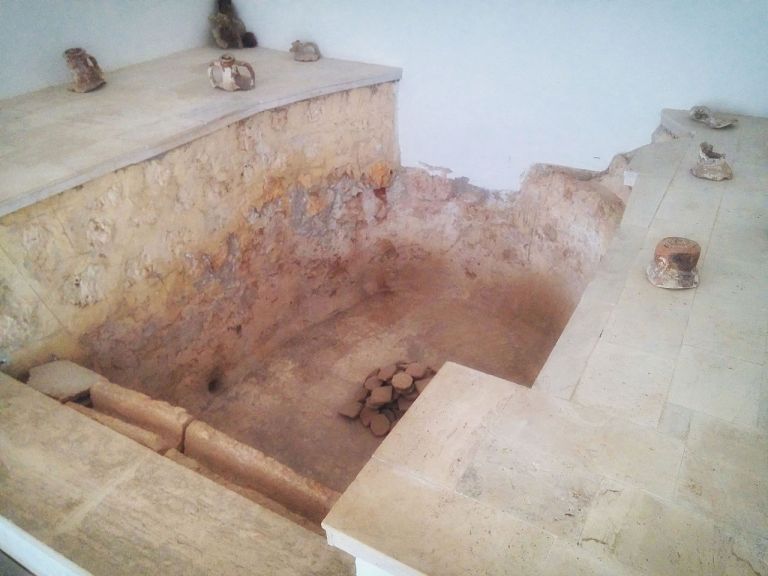
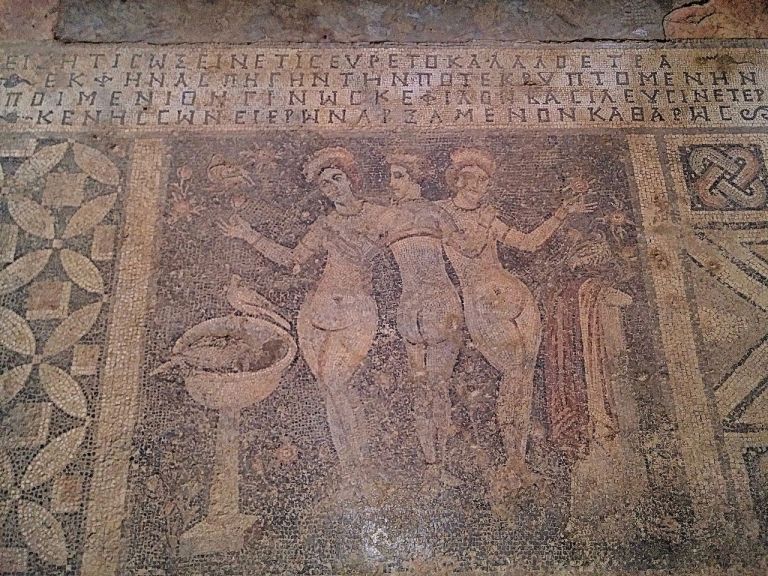
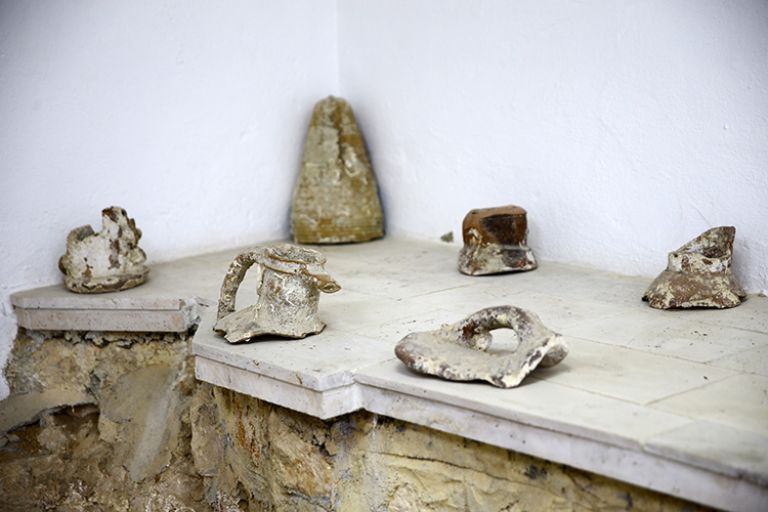
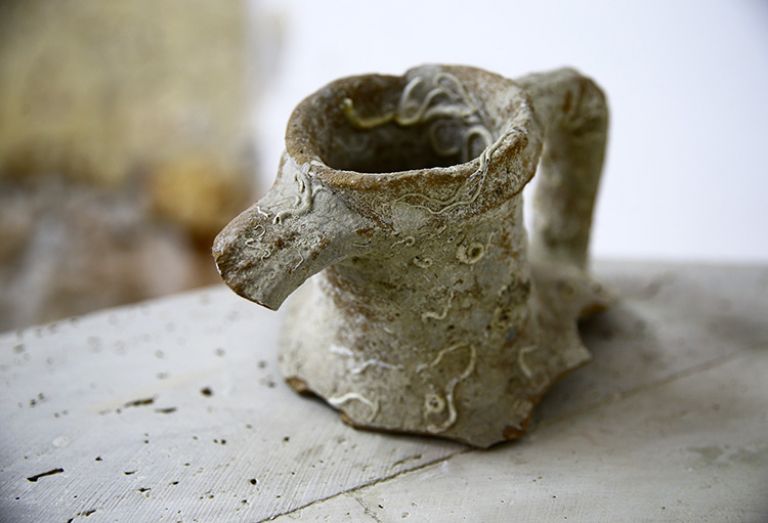




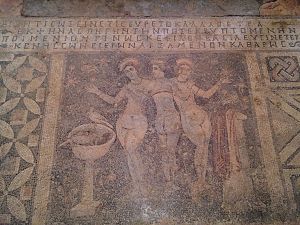
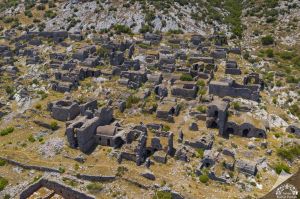
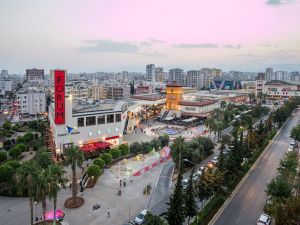
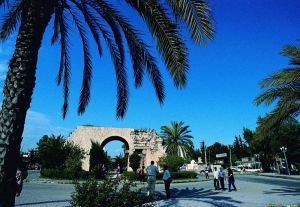
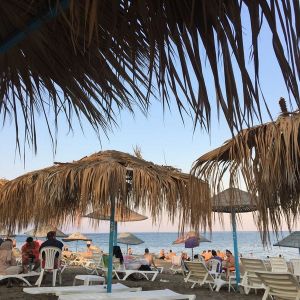
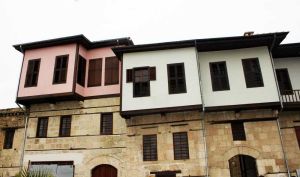
Değerlendirmeler